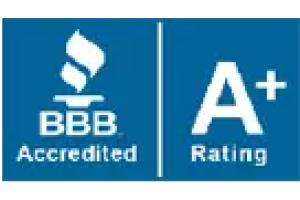Trial Lawyers
Education Law
Education Law: Protecting the Rights of Students, Parents, and Educators
Education law is a specialized area of legal practice that focuses on the rights and responsibilities of students, parents, teachers, schools, school districts, and school boards in public and private educational institutions. It also extends to homeschooling environments. This branch of law covers many issues, including constitutional rights, special education, school safety, curriculum standards, testing procedures, school finance, and anti-discrimination protections.
What is Education Law?
Education law ensures that the rights of all parties involved in the educational process are protected and upheld. This includes the rights of students to receive free and appropriate public education, the rights of teachers to work in a safe and non-discriminatory environment, and the rights of parents to have a say in their children’s education. These rights are safeguarded by various legal frameworks, including:
- The U.S. Constitution: The Constitution guarantees essential rights in educational settings, such as First Amendment rights to free speech and religious freedom and the Fourteenth Amendment’s Equal Protection and Due Process clauses.
- Federal Legislation: Federal laws are crucial in shaping education law.
- For instance, the Americans with Disabilities Act of 1990, Section 504 of the Rehabilitation Act of 1973, and the Individuals with Disabilities Education Act (IDEA) ensure that students with disabilities are not excluded from participation in or denied services, programs or activities from public entities, including schools; prevent exclusion from programs or activities receiving federal financial assistance; and receive a free and appropriate public education tailored to their needs.
- Title VI of the Civil Rights Act of 1964 prevents recipients of federal financial aid from discriminating against individuals based on race, color, and national origin.
- Title IX of the Education Amendments of 1972 prohibits recipients of federal funds from discriminating based on sex, which includes pregnancy, parental status, and sex stereotypes.
- State and Local Laws: Education is heavily regulated at the state and local levels, with laws governing everything from teacher certification and school curriculum to student discipline and school funding, in addition to expansion of the protections of federal laws.
- Judicial Decisions: Court rulings, particularly from the U.S. Supreme Court, have shaped education law by interpreting the Constitution and federal statutes in cases involving school prayer, student expression, and desegregation.
Common Issues in Education Law
Education law is a dynamic field that evolves in response to societal changes, educational practices, and legal interpretations. Some common issues include:
- Special Education: Ensuring students, staff, administrators, parents and others receive reasonable and appropriate accommodations; and students with special needs are afforded, where appropriate, Individualized Education Programs (IEPs).
- First Amendment Rights: Protecting the free speech rights of students and teachers while balancing these rights with the need to maintain a safe and orderly learning environment.
- Bullying and Harassment: Addressing in-person and cyberbullying issues and ensuring schools take appropriate action to prevent and respond to these behaviors.
- Discrimination: Advocating for the rights of students and educators to be free from discrimination based on race, gender, religion, disability, and other protected characteristics.
- Disciplinary Actions: Ensuring that students and educators are treated fairly in disciplinary proceedings, with respect for due process rights.
- Curriculum and Parental Rights: Navigating conflicts between school curriculum requirements and students’ and their families’ religious or political beliefs.
When to Consult an Education Law Attorney
Due to the complexity of education law and its intersection with civil rights and employment law, seeking legal counsel is crucial when facing potential violations of educational rights. Whether you are a student, parent, teacher, or school administrator, an experienced education law attorney can help you understand your rights, navigate the legal system, and pursue appropriate remedies. This may involve filing a lawsuit for financial damages, seeking injunctive relief, or defending against allegations of misconduct.
The evolving nature of education law means that what is legally permissible today might change tomorrow. Having knowledgeable legal representation is essential. If you believe your educational rights have been violated or need guidance on complying with education law, consulting with a skilled attorney can provide the clarity and support you need.
How We Can Help
The Chicago education and employment lawyers at Loftus and Eisenberg are dedicated to protecting the rights of all those involved in the education system. We offer comprehensive legal services in education law, with a deep understanding of the relevant legal frameworks and a commitment to justice and fairness. Whether you need assistance with a particular education dispute, a free speech issue, or any other education-related legal matter, we are here to help. Our lead education attorney is TiShaunda McPherson. TiShaunda is a seasoned employment and education lawyer with a JD from Northwestern and numerous other degrees. She is also a change management executive who is celebrated for her extensive expertise and significant accomplishments in diversity, equity, and inclusion. TiShaunda’s background is beyond impressive, from her start at Kirkland and Ellis LLP to her efforts in resolving high-profile Title IX claims and most recently serving as Senior Associate Vice President, Office of Equity at Northwestern and inaugural Senior Vice President and Chief Diversity Officer at NORC at the University of Chicago.
Contact TiShaunda directly today to discuss how we can help you achieve a just outcome.
TiShaunda McPherson, Senior Counsel
(312) 820-7595
tishaunda@loftusandeisenberg.com
















